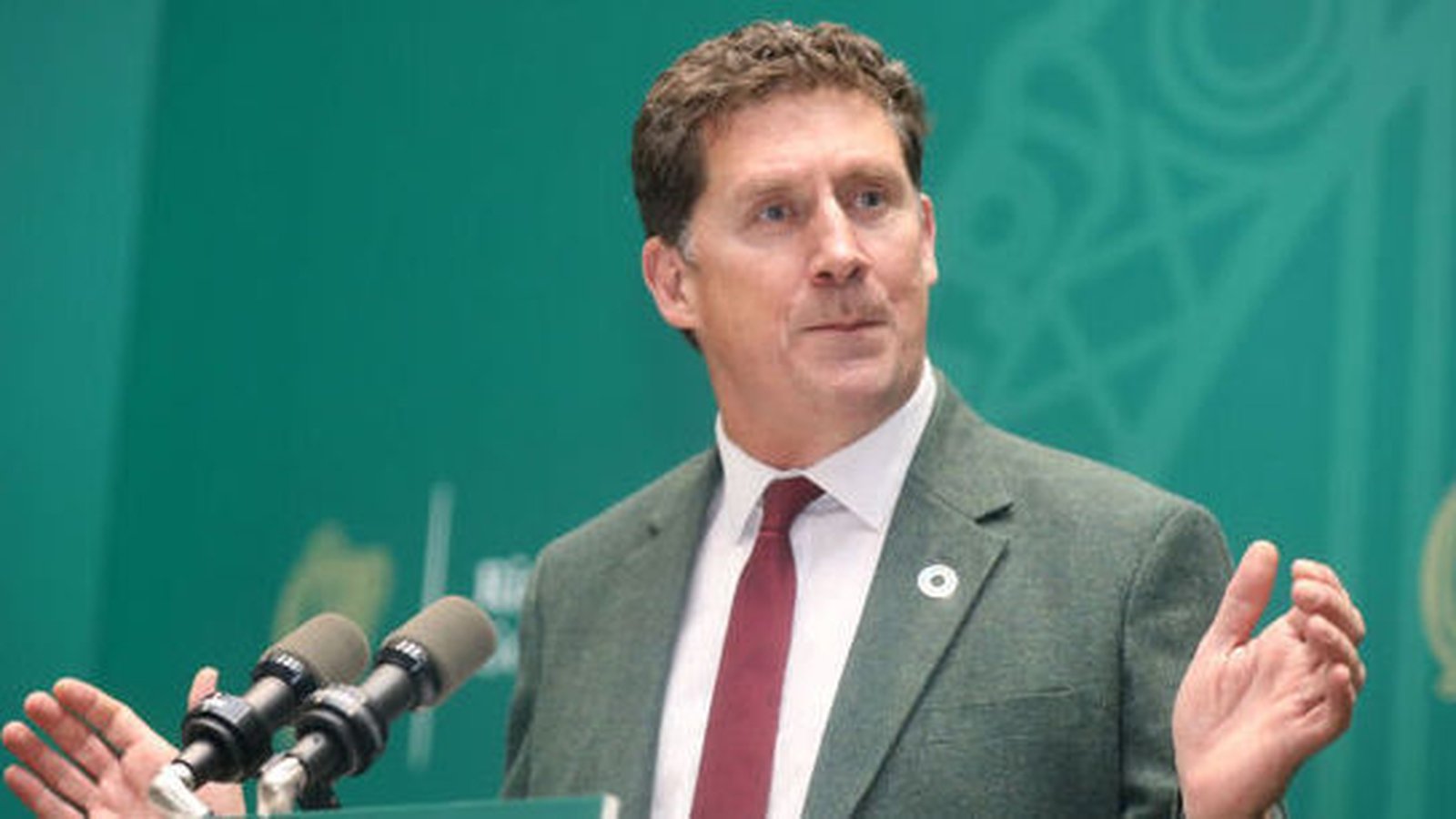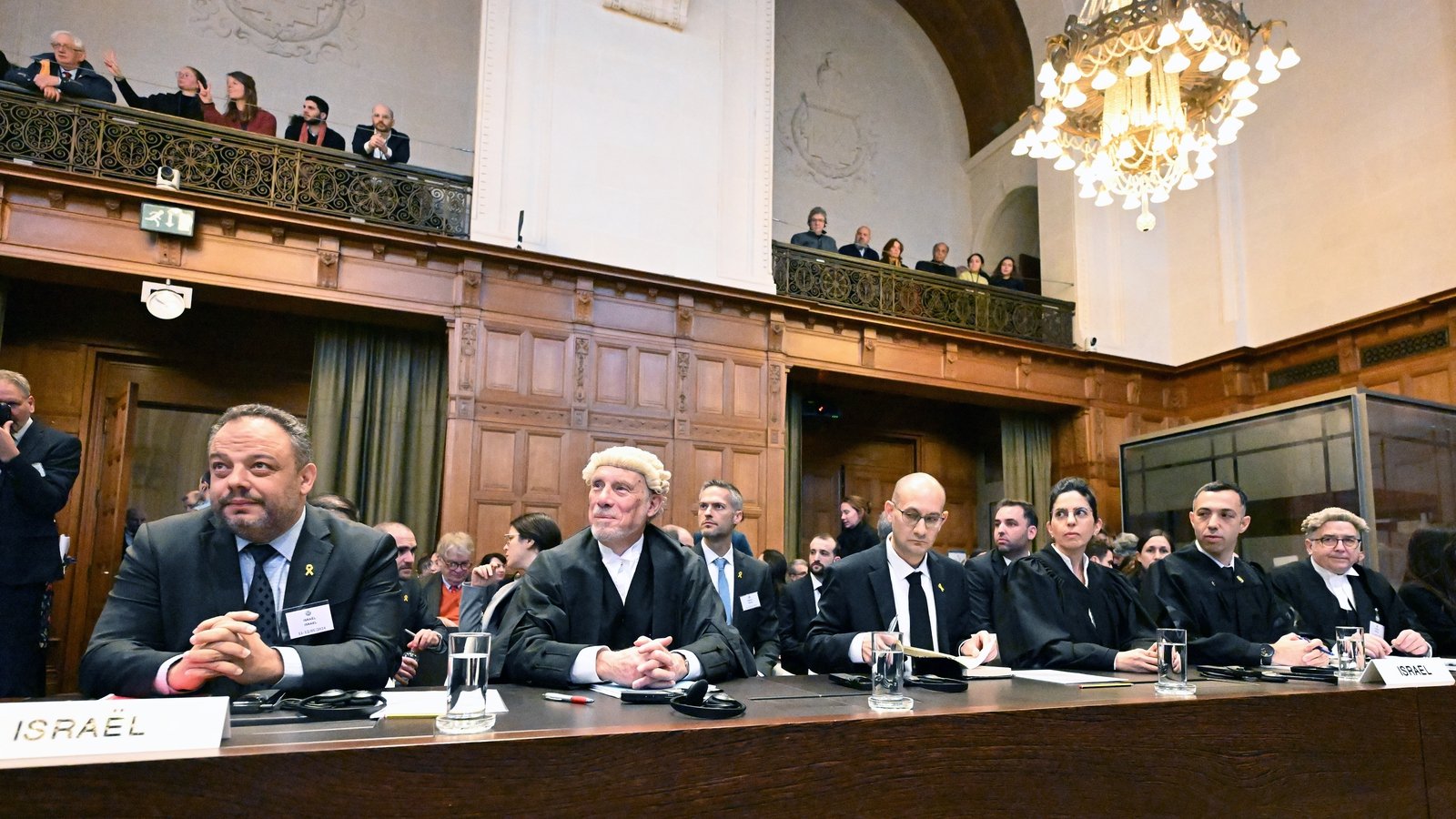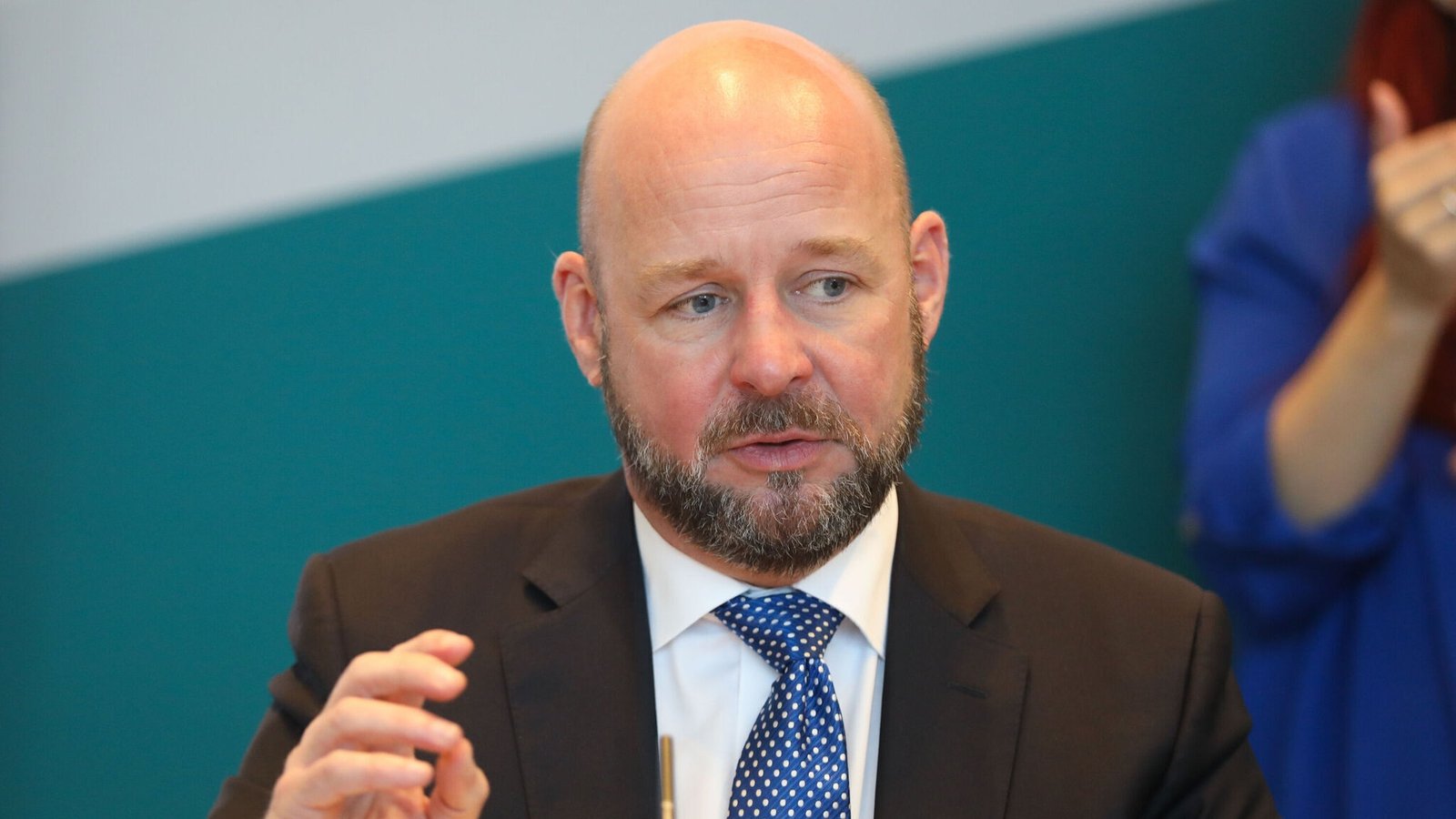Michael Lynn’s final roll of the dice did not pay off
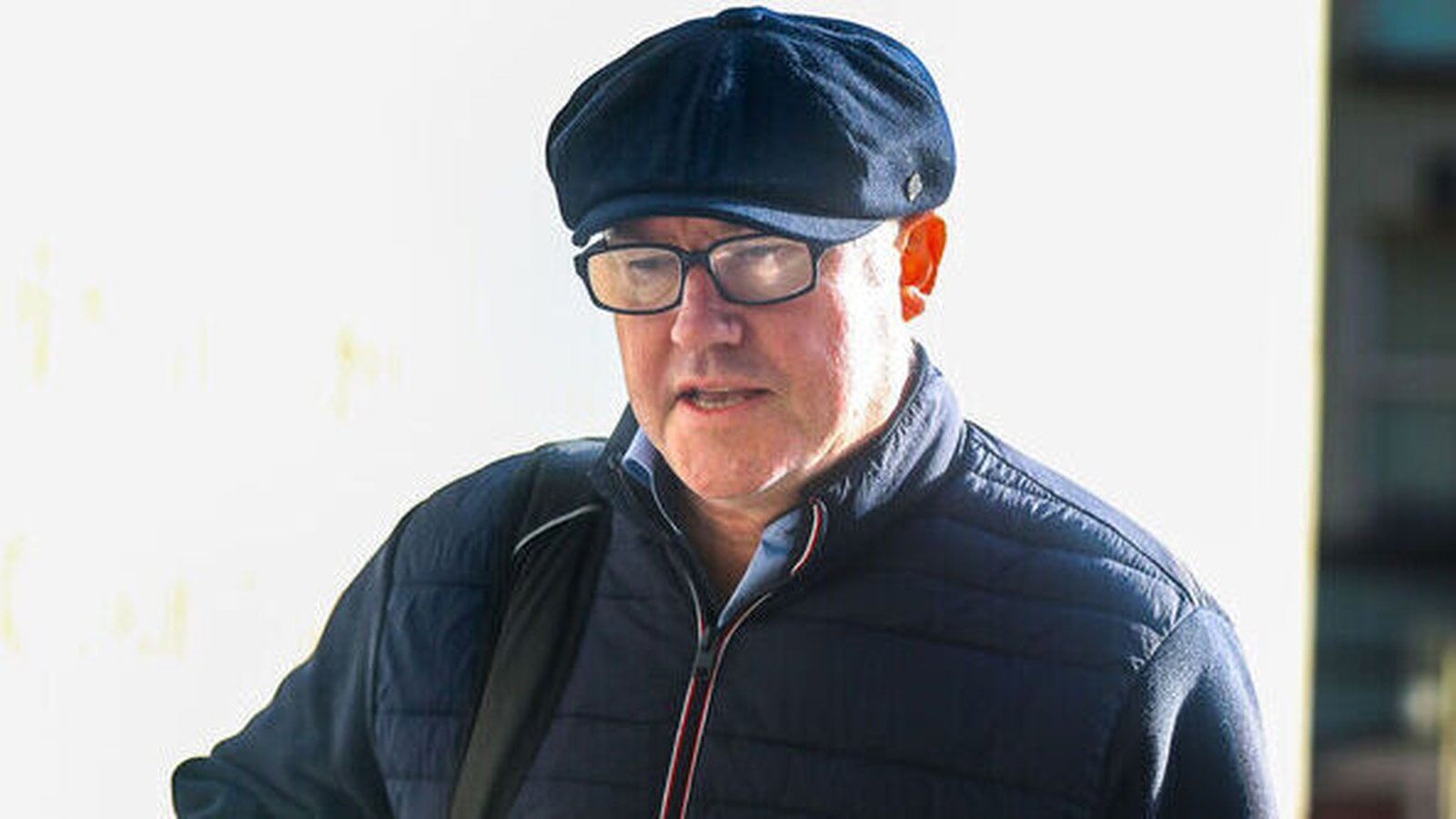
The sentencing of former solicitor Michael Lynn to five and a half years in prison for the theft of more than €18m from financial institutions in 2006 and 2007 brings a long-running legal saga to an end.
Lynn had avoided the Irish courts for more than a decade after failing to turn up in the High Court to be cross examined about his property deals in December 2007.
When he was eventually found guilty in December 2023, Legal Affairs Correspondent Orla O’Donnell looked back at what was a 16-year game of cat and mouse.
A low murmuring began to rise around Court number six, as those gathered there realised what was happening.
“Call Mr Lynn,” the President of the High Court directed the court registrar.
It was 12 December 2007. The small bright courtroom on the ground floor of the Four Courts building was packed with people, all eagerly waiting to hear the cross examination of a now notorious solicitor.
The Law Society had been investigating Michael Lynn and its lawyers were now going to ask him questions, in public, about some of his property dealings.
The solicitor had been headline news since the story was first broken in the Irish Independent newspaper in October.
By December, the courts heard he had estimated liabilities of around €80 million and was suspected of taking out multiple mortgages on the same properties with different financial institutions.
Lynn appeared to be co-operating with the investigation. He came to court on each occasion he was required to, often hand-in-hand with his wife Bríd, acknowledging the photographers and camera people outside with a wry smile and greeting the journalists inside.
But on this particular morning, he was nowhere to be seen.
“Any appearance by or on behalf of Mr Michael Lynn?” the registrar called. Nothing.
All of us, lawyers, journalists, bankers and gardaí, twisted and turned and scanned the crowded courtroom. Michael Lynn was not there.
His lawyers applied to come off record, meaning they would no longer represent him.
Mr Justice Richard Johnson directed Lynn be arrested and brought to court to appear before him at 2pm. Even at that early stage, it was becoming clear that it was too late.
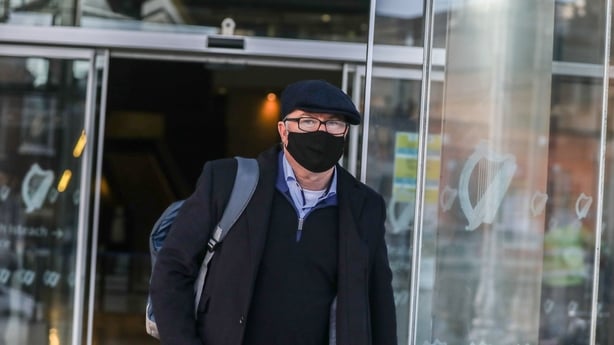
Lawyers for his wife told the court she had last seen him at a solicitor’s office in London a couple of days previously. He had not been returning her calls, but she was expecting he would “soon”.
Lynn had left the jurisdiction, and it would be more than a decade before he would set foot again in an Irish courtroom.
That hearing was the beginning of a cat and mouse game that ended 16 years on, with Lynn being taken into custody five days before Christmas.
Lynn had told jurors at his first trial he may have been guilty of being “greedy” and “too driven” but he claimed he was not a thief.
“I know what I agreed with the banks,” he said. “I know what this has cost me and I’ve waited a long time to tell this story.”
Michael Lynn claimed the reason he had not turned up in the High Court all those years ago was that bankers, including Sean FitzPatrick of Anglo Irish Bank and Michael Fingleton of Irish Nationwide Building society, had persuaded him not to.
He said they were concerned about what he might say and did not want the details of his lending arrangements to come out in public.
He also denied that he had tried to avoid being interviewed by gardaí over the following years, claiming it was not true that he “fled” to Brazil, a country with which Ireland had no extradition treaty.
He was arrested there in 2013 and remained in prison for more than four years while he fought his extradition.
He gave a vivid description to his first trial of his time in a “hellhole” prison in Recife in the north of the country where he said, the rats were so big the cats were afraid of them.
Lynn told the jurors the prison was run by inmates with guns and swords like “something out of Game of Thrones”.
He saw a fellow prisoner decapitated because he was gay and he was sick with pneumonia 11 times. He rejected the prosecution suggestion that he could have left the prison any time and come home to Ireland, instead of fighting extradition “tooth and nail”.
By the end of February 2018, his legal options in Brazil had run out however, and he boarded a plane back to Ireland, accompanied by a number of garda officers. As a snowstorm hit the country, he was brought before the District Court in Dublin on 1 March, where he was charged with 21 counts of theft.
Lynn’s trials took place in the Criminal Courts of Justice – a building that had not even existed when he left Ireland. The country had moved on since the Celtic Tiger, since the days when banks were throwing money at people who wanted to invest in property.
Lynn was charged with theft by exploiting a weakness in the banks’ systems and deceiving them about what he was going to do with the millions of euro they gave him to buy property in Ireland.
Banks relied on the expectation that when they lent money for property, the solicitor for the buyer would undertake to register a first legal charge against that property. Without such a charge, the bank had no security against their loan and no easy way of getting their money back if the loan went bad.
The banks trusted the solicitors as officers of the court. But Lynn was the borrower as well as effectively being the solicitor in many of the transactions.
In his direct evidence to the court in that first trial Lynn, the youngest of five children who grew up on a dairy farm in Crossmolina, Co Mayo, portrayed an image of an ambitious, likeable, rural boy made good.
He told the jurors he made no effort to conceal what he was doing from the banks. He was doing business and the banks were enabling and assisting him to do it he said.
They were “comrades in arms” who had found a way to make money from him by getting in on his foreign investments despite technically not being able to lend money for property abroad.
Lynn said the banks allowed him to borrow on an undertaking only basis, meaning they knew he was not going to register their mortgages on the properties. This, he claimed, allowed him to move quicker as a borrower and as a seller of property. And he said loan documents did not reflect the true nature of his relationship with specific bankers or senior people on the institutions’ credit committees.
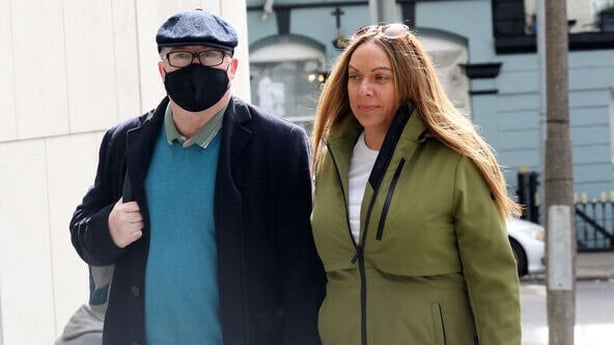
His wife, Bríd Murphy, also gave evidence in defence of her husband. She described her health and fertility battles and how she had stuck by him. She broke down as she told the jurors that after his arrest, she did not know for five days whether he was alive or dead.
Two of their four children, the court heard, were conceived during conjugal visits at the prison. She denied they had any money “squirrelled away”. Instead, she said they relied on social welfare and the support of their families.
Despite rebuttal evidence from bankers and strong denials by all of the institutions that they knew what Lynn was doing and supported it, some members of the jury clearly had sympathy for Lynn’s plight.
After more than 12 hours of deliberations, they were hopelessly split and told Judge Martin Nolan they were unable to reach any decision on which a majority of ten agreed.
Lynn’s retrial was a shorter affair. The jury heard less colourful detail about his stay in the Brazilian prison and his wife did not give evidence.
Judge Nolan noted in his charge, that between 2007 and 2012, “people weren’t very fond of banks” and said their reckless behaviour had “brought us into a bad state”. But he warned the jurors to be cold and dispassionate when assessing the evidence.
Back in October 2007, Michael Lynn’s name was frequently mentioned in the same breath as that of another so-called “rogue solicitor”, Thomas Byrne. Byrne’s practice had been shut down by the Law Society at around the same time. He had also subsequently disappeared for a period, but re-emerged in the High Court some weeks later.
Not long after Michael Lynn was arrested in Brazil in 2013, Byrne went on trial at Dublin Circuit Criminal Court. He was convicted by a jury of 50 charges of stealing €52m from banks as well as defrauding 13 clients out of houses or money. He was jailed for 12 years but was released in December 2021.
The maximum sentence for the theft charges Lynn has been convicted of is ten years in prison. He is likely to get some credit for the four and a half years he spent “languishing” in a Brazilian prison.
But if he had not left Ireland, it is likely the legal proceedings and any penalty imposed on him, would have come to an end long ago.
However, it is clear he thought the chance of acquittal and vindication was worth taking.
In his closing speech to the jury in this trial, Prosecuting Senior Counsel Karl Finnegan said it was clear Lynn “lived for the next big deal”.
Mr Finnegan said Lynn was still gambling but “the gamble had changed”. He told the jurors: “the gamble is, you might accept his version of events”.
In the end, his final roll of the dice did not pay off.
The jurors could not agree on more than half the counts against Lynn. But they unanimously found against him on seven charges and reached a majority decision on three more.
Michael Lynn trial: Former solicitor’s allegations left court ‘stunned’

